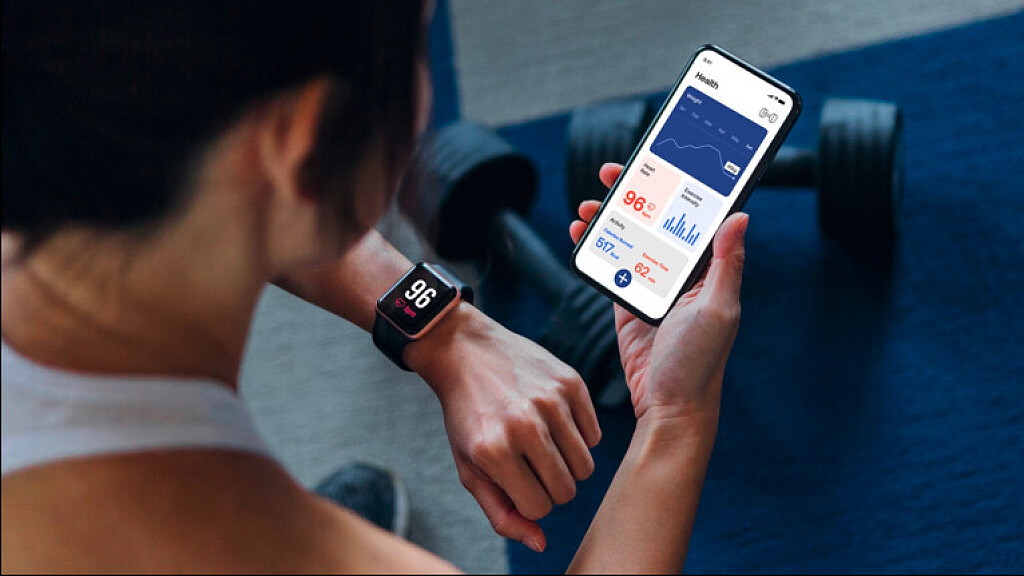Running News Daily
Running News Daily is edited by Bob Anderson. Send your news items to bob@mybestruns.com Advertising opportunities available. Train the Kenyan Way at KATA Kenya and Portugal owned and operated by Bob Anderson. Be sure to catch our movie A Long Run the movie KATA Running Camps and KATA Potato Farms - 31 now open in Kenya! https://kata.ke/
Index to Daily Posts · Sign Up For Updates · Run The World Feed
Why Some People Shouldn’t Use Fitness Trackers, According to Experts
Newsflash: All that data you’re mining may not be good for your healt
For many endurance athletes, data is everything. Having the ability to track your steps, pace, and sleep via a smart device can be helpful and fascinating. Findings from Pew Research Center show about one in five U.S. adults regularly wears a smartwatch or fitness tracker. However, this constant monitoring can also be problematic.

“Tracking devices have the potential to reinforce negative behaviors by fostering obsessive tendencies, leading to anxiety and disordered eating patterns,” says Haley Perlus, a sports and performance psychologist. “Perfectionists, individuals with a history of eating disorders, and those prone to overexertion should exercise caution with tracking devices, as they may amplify existing issues.” She adds that you may become goal-obsessed—often at the expense of your overall well-being.
The issues may even extend beyond yourself, affecting your relationships and work performance, says Jessica Matthews, an associate professor of integrative wellness at Point Loma Nazarene University and director of health and wellness coaching at UC San Diego Health. Research published in Eating Behaviors in 2017 found that calorie and fitness tracking devices have been linked to characteristics synonymous with eating disorders.
Additionally, in a 2023 study published in the Journal of Medical Internet Research, participants who had their Apple watches unknowingly manipulated to show a lower step number at the end of the day were more likely to demonstrate unhealthy behaviors, including reduced self-esteem and increased blood pressure. This is compared to participants whose step count remained accurate and untouched.
Even being unable to wear the device—whether it’s not charged or is misplaced—can lead to frustration or anxiety, according to a 2019 study in BMC Psychology. According to Wendy Troxel, a licensed clinical psychologist and certified behavioral sleep medicine specialist, stress can become exacerbated by not meeting a tracking goal. Take sleep, for instance. Troxel says athletes can suffer from orthosomnia, an obsession with pursuing optimal sleep, driven by sleep tracker data. But this mission, to get good sleep at any cost, often ends up causing more anxiety—and even leads to a greater loss of sleep when you end up missing the mark. As a result, your athletic performance can suffer.
It’s OK if you lean on your tracking device or enjoy studying the data it collects. However, understanding where to draw the line is key to maintaining a healthy relationship with it. Perlus recommends following these four guiding principles.
You should use your fitness tracker to gain insights and motivation, but you shouldn’t feel compelled to monitor every activity or constantly check your stats.
You should genuinely enjoy your workouts and activities, regardless of whether you’re wearing your device or not. “The tracking enhances your experience, but doesn’t define it,” Perlus says.
You should be able to adapt your training plan based on how your body feels—rather than strictly following what the tracker dictates.
Tracking shouldn’t cause you undue stress or anxiety. “If a missed goal or low data reading upsets you excessively, it might be a sign of an unhealthy attachment,” Perlus says.
If your thinking doesn’t align with these principles, you may have an unhealthy relationship with your tracker.
Instead of constantly looking at your stats, Matthews recommends turning to daily journaling. “Subjective data can actually be just as beneficial as tracking more objective data from a smartwatch, as this information can paint a more complete picture of not only one’s progress, but one’s overall health and well-being,” she says. The practice of recording workouts, including how you felt during and after each session (think: mood, soreness, stress) can help you reflect in a healthy way, she explains.
Perlus also recommends paying attention to physiological cues like your heart rate variability, sleep quality, and energy levels. If you’re still looking for external feedback, consider finding a training partner or joining a workout club. By looking to others for support and motivation, you’ll work toward your goals—and build a new community.
When it comes to fitness feats, such as running a marathon, cycling a century, or climbing a mountain, the overemphasis on metrics can actually steal your joy and your sense of accomplishment. Instead, you may feel a greater sense of performance pressure, triggering anxiety or fear around falling short of your goals, Perlus says.
By tethering yourself to tracker stats, you may be setting yourself up to miss out on all the exciting things that make up an endurance event: your surroundings, the course, the camaraderie of fellow participants. And being present—noticing, without judgment or expectation, the thoughts that arise and the physical sensations experienced in your body—is a big part of engaging in physical activity of any kind, Matthews says.
While using fitness trackers can be motivating, make sure that doing so doesn’t override your ability to rest, recover, or engage in other forms of self-care. If you’re feeling mental anguish or pressure to meet certain goals and numbers, it may be time to ditch that tracker.
by Outside Online
Login to leave a comment




